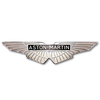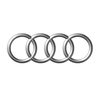seasonal maintenance summer checks you should not neglect
Even if you are not an experienced driver or car enthusiast, you probably know that cars need some preparation before summer as well as winter in order to have a perfectly enjoyable driving experience and a trouble-free ride. The temperature differences, direct sunlight and heat really can affect the car‘s performance if you didn‘t took the necessary precautions and today we will tell you exactly what you need to do to fully enjoy summer driving and nice weather cruising.
Summer tires
As you already know, there are two main types of passenger car tires – winter and summer tires. Winter tires are designed to perform when the outside temperature is low with the rubber compound designed to withstand freezing conditions while still retaining grip and road holding characteristics. The summer tires are made to perform best in warmer conditions and offer full control in normal driving situations. If you decide to run summer tires in the winter, you will experience very low level of grip which will put you in danger. On the other hand, if you drive in summer with the winter tires on, you will use more fuel, put unnecessary stress on the suspension and braking, and you’ll also experience excessive tire wear. So, installing summer tires in the spring is a must. Proper rubber on your wheels will not only give you traction and braking capabilities you need, but also result in better fuel economy and less wear on the suspension system.
Coolant system
Due to high summer temperatures, your engine cooling system needs attention. If you want to fully prepare, you should do radiator flush, change the cooling fluid and inspect the engine for any potential leaks. This way you will ensure perfect cooling of your engine and avoid overheating issues when the temperature gets hot. Also, a particularly important thing to check is the thermostat which is a simple part designed to start the cooling fan in front of your radiator if the temperatures get too hot. Be sure that the thermostat opens as it should or replace it if it’s broken. The cooling system checks and repairs are not expensive or complicated and you can do them by yourself, with regular tools and in your own driveway. However, do not skip this since it can save you a lot of money and trouble later on.
A/C system
You certainly don‘t want to sit in a traffic jam in mid-August without air conditioning. So, before it gets too hot and all air conditioning specialists get too busy, check if your A/C is working properly. It is not enough just to turn it on and see if its blows cold air, the only way to fully inspect it is to take to the professionals who will check the level of Freon gas, condition of the compressor unit, seals and hoses. If everything is in order, you are good to go but if not, get it sorted. The potential repairs should not be expensive or time consuming and you will be glad that you did it when your car gets hot as a kitchen oven during the summer.
Oil change
It is recommended to do oil change at least once a year, regardless of the covered mileage for full protection of the engine‘s internals and components. We suggest you to do that just before the summer season, especially if you live in really warm areas. The reason is pretty simple. Oil gets really hot, just as the engine itself and if the oil is older, the high temperatures can cause the viscosity to fade causing damage of the engine, cylinders, piston rings or valve train. To avoid all that, simply do oil change before the summer season and you will be sure that your engine has been protected. Also, check the transmission fluid, if you own a car with automatic transmission and consult professionals or instruction manual for further advice. If you live in very hot areas, manufacturers suggest special gradation oils which will prevent loss of viscosity even in extreme temperatures.
Summer cleaning
Despite the fact that this sounds like just a cosmetic tip, it is much more than that. Thorough cleaning before the summer season is equally beneficial for mechanical health of your car as is for aesthetics. During the winter, in continental climate, roads are covered with salt. Salt is great for keeping tarmac from freezing but is causing corrosion of the car’s body, external parts and also can affect the brakes and steering systems. In order to fully protect your car, you should wash it underneath each time you drive it on the salty roads. However, we know that it is not possible and owners tend to forget to do it. That is why you should fully wash, detail and wax your car before the summer. Complete cleaning will remove any salt residue from the undercarriage of your vehicle, brakes and floors and waxing will help preserve your paint and lacquer from sunshine and heat.


























































